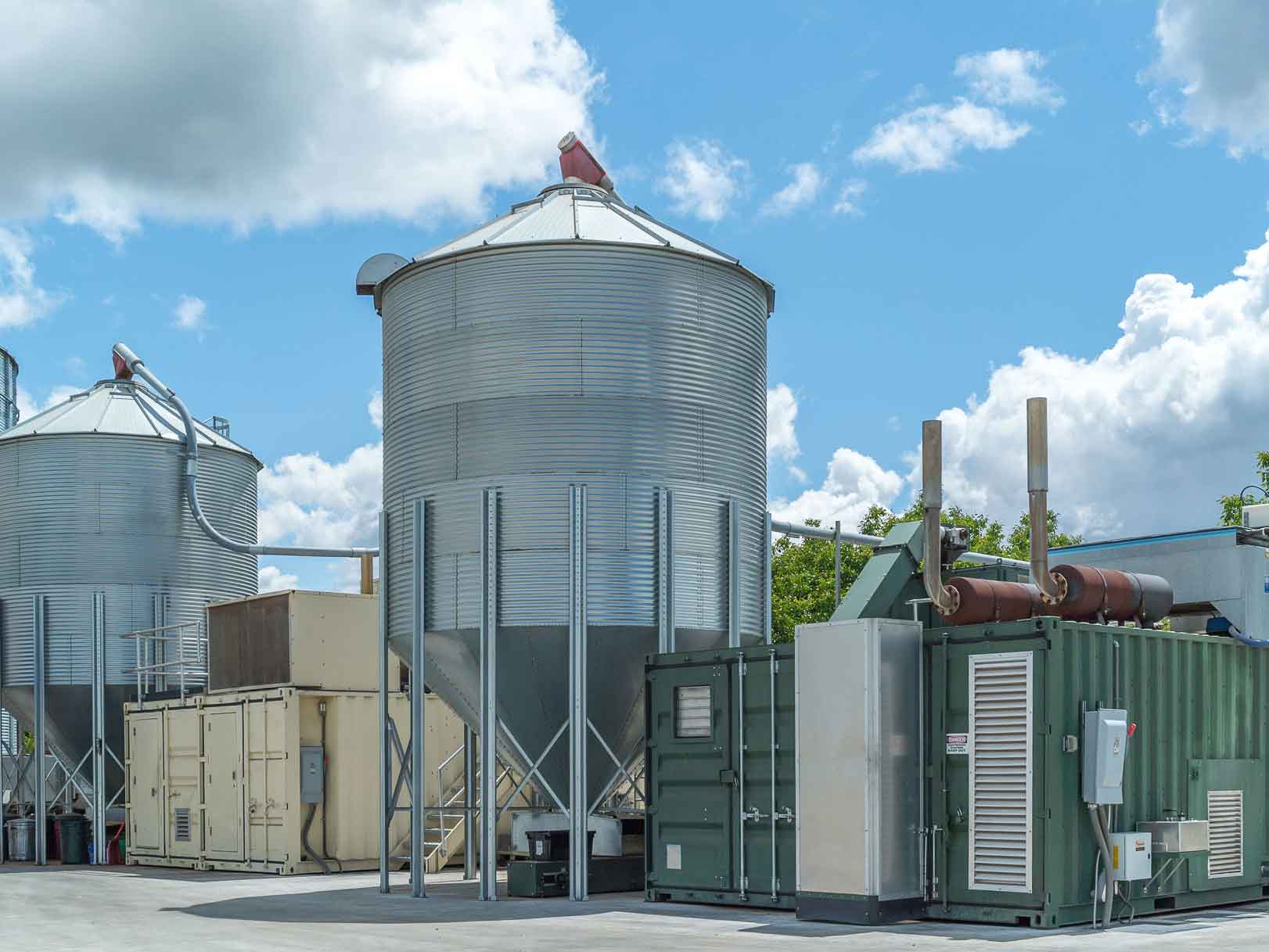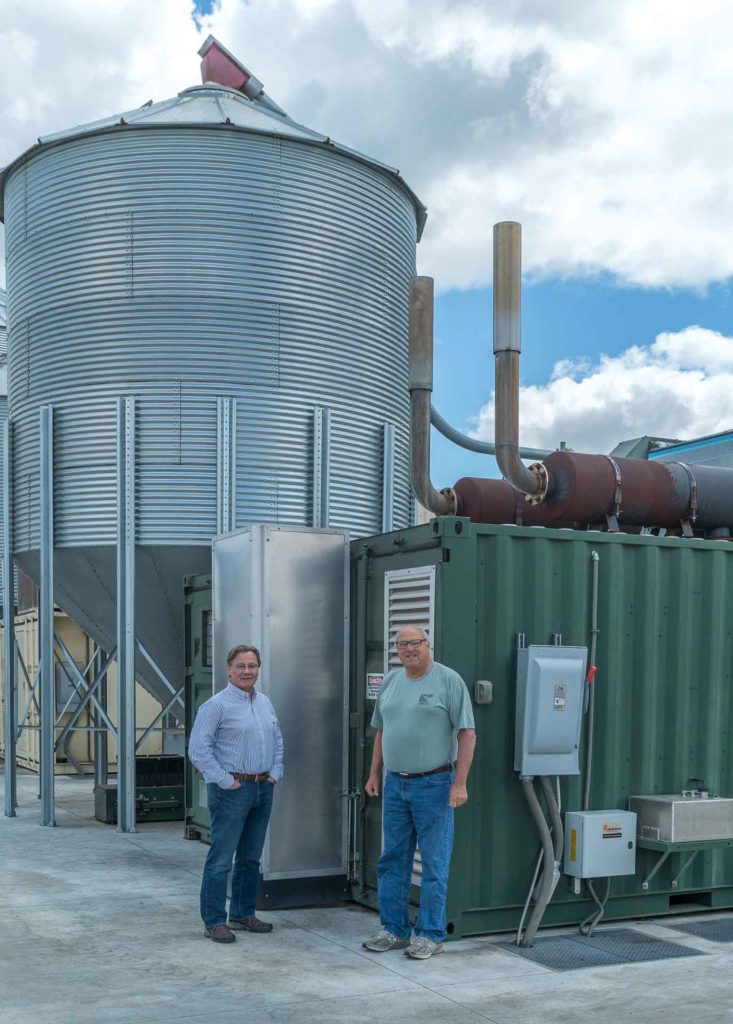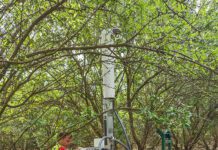Sustainability seems to be the new buzzword lately. From farms to retailers, and across many industries, everyone is talking about sustainability. But for some, like Winters-based Dixon Ridge Farms, a vertically integrated organic walnut grower, huller-dehydrator and processor, it has long been a way of doing business. Before sustainability became ‘cool’, Russ Lester, owner of Dixon Ridge Farms, was employing the whole systems approach to growing, harvesting and packing organic walnuts. This meant working with nature and being precise and selective with resource inputs; for example, allowing beneficial insect predators to thrive rather than use harsher chemicals, no or low tillage, cover cropping to maintain soil fertility and health, reducing water use through precise irrigation, using efficient equipment to minimize energy loss, using solar panels and reusing heat to further maximize drying efficiencies, using recycled paper for packaging material, and so on. It is a classic example of following the 3 R’s-Reduce, Reuse and Recycle, which makes both environmental and economic sense.
Next Level Farming
In 2007, Dixon Ridge Farms took things to the next level by installing an on-farm energy generator that used walnut shells. The BioMax® 50, a 50 kilowatt biomass energy generator was the first of its kind in the entire state. Prior to that, most of the walnut shells were sent to regional biomass energy plants. But such ‘cogen’ power plants had their own issues of emissions and air quality. Moreover, such biomass energy plants have been steadily losing ground to tax subsidized solar energy plants or cheap natural gas plants, creating a headache for farmers regarding farm waste disposal. Dixon Ridge Farms’ partner in this venture was Community Power Company (CPC), a wholly owned subsidiary of SynTech Bioenery LLC, which specializes in modular on-farm bioenergy generator units that use various agricultural waste feedstock to produce energy and heat. This at once achieved multiple objectives—reusing agricultural waste that would otherwise go to landfills, generating clean, carbon negative energy for on farm use, reducing or eliminating the need for fossil fuel based energy and the associated costs of procuring it, and above all, greatly reducing the environmental impact of the operation. This project resulted in Dixon Ridge Farms being honored with the prestigious Governor’s Environmental and Economic Leadership Award (GEELA).
Second Unit
In 2012, Dixon Ridge Farms upgraded to the BioMax® 100 Gen1 unit. All in all, it produces 643,000 kWh, enough to provide some $102,000 worth of electricity and off set $24,000 worth of propane used for drying walnuts. This was followed by the installation of a second unit, the BioMax® Gen2, in 2014 (see photo 1). Further, biochar, a byproduct of the energy generation, can be incorporated into soil as a nutrient and moisture retention and release media. The biochar effectively binds fertilizers and irrigation water and releases them slowly and evenly rather than all at once, thereby preventing loss of nutrients and water. This, in turn, would help avoid air and water quality issues caused by aerosolization (Nitrous oxide) and leaching (Nitrate). Biochar also provides food and shelter to beneficial organisms residing in the soil, thereby boosting soil health.
Regulatory Changes
Russ invited UC Davis researchers to look at his operations, and they found that Dixon Ridge Farms was, in fact, carbon negative, i.e. it was removing more carbon dioxide than adding to it. While most businesses are still striving to be carbon neutral, Dixon Ridge Farms was ahead of the curve. This partnership with SynTech has brought a second GEELA award for Dixon Ridge Farms in 2018. In addition, Russ has received numerous other awards such as EPA Sustainable Agriculture Champion Award (2012) and IPM Innovator Award (2011) among others. But he is far from being done. He wants to continue fine tuning his operation so they can utilize all byproducts generated on the farm. He also wants to continue advocating for regulatory changes so renewable sources like agricultural byproduct get the same respect and level playing field as solar and wind does. He would like to see more common sense regulations governing on-farm renewable energy generation so farms like his willing to invest in bioenergy projects are not hamstrung by policies and politics involving utility companies. But above all, he would like everyone to remember one very important thing….it is farmers who feed the society.
(Sources: Dixon Ridge Farms: http://www.dixonridgefarms.com/home.html;
SynTech Bioenergy LLC: http://www.syntechbioenergy.com/)

















